Mobility Publications
Fourteen Year Gains: Project QUEST’s Remarkable Impact
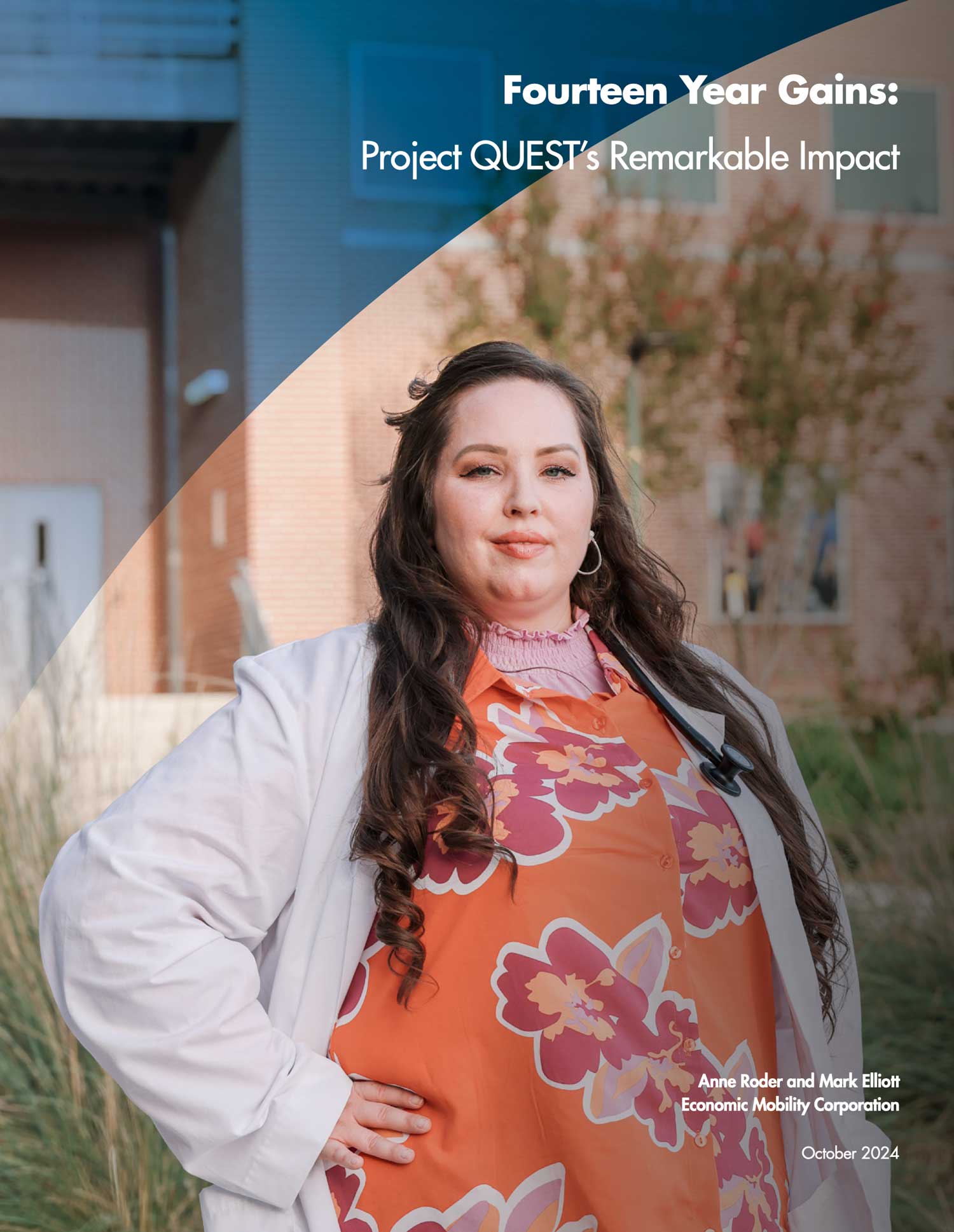
October 2024
Mobility’s ongoing randomized control trial evaluation of Project QUEST found that QUEST participants earned $54,000 more than control group members over the 14 years after enrollment. Older participants enjoyed the largest earnings impacts.
Read more here
Early Gains: Pandemic Curbs Earnings Impacts of JVS Boston’s English for Advancement
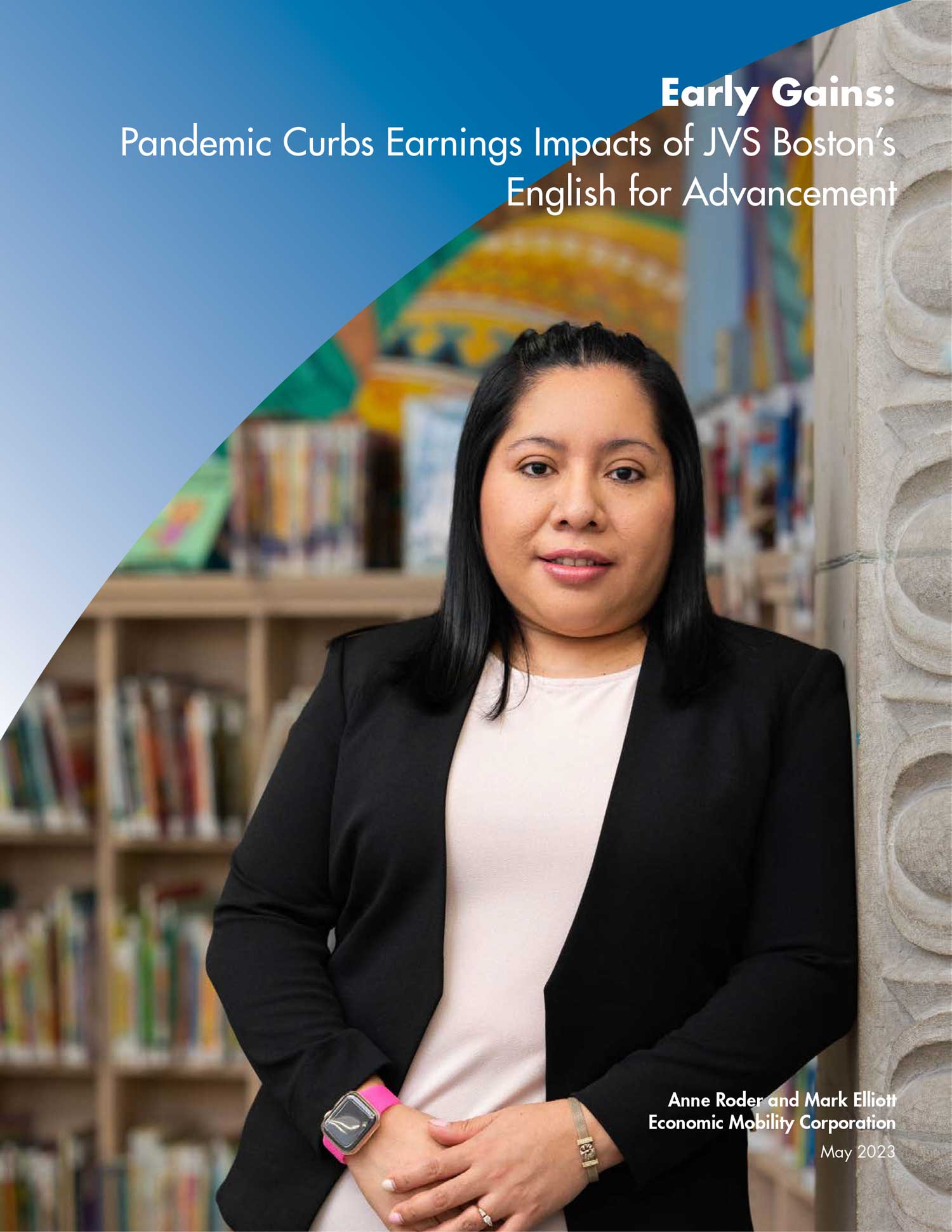
May 2023
Mobility’s evaluation of JVS Boston’s English for Advancement (EfA) found that the program increased participants’ earnings by 6.7% relative to a control group in the second year after program entry. EfA had a large, statistically significant earnings impact for the group of participants whose observation period ended prior to the pandemic. However, the program had no detectable impact for the group whose observation period overlapped with the pandemic. The final report provides important lessons for the adult education and workforce development fields on increasing the employment and earnings of adult English-language learners.
Stepping Up: Interim Findings on JVS Boston’s English for Advancement Show Large Earnings Gains
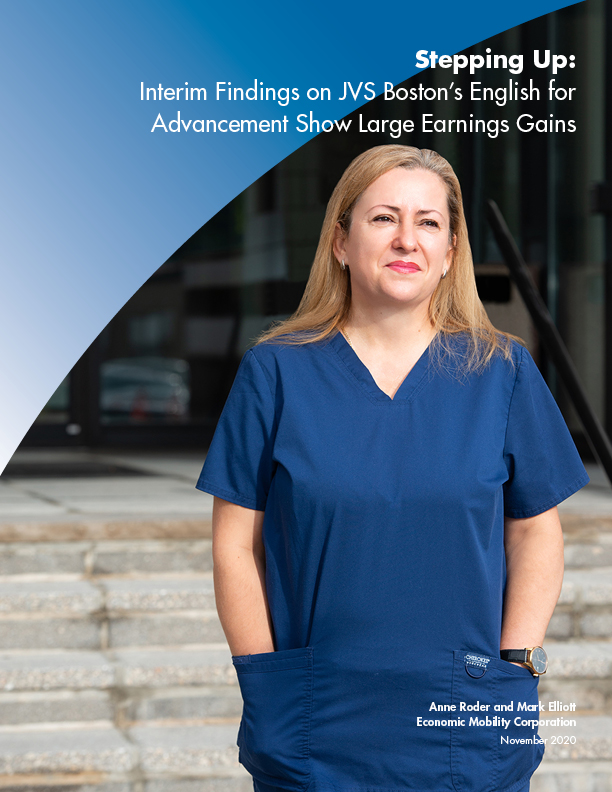
November 2020
Mobility’s rigorous evaluation of JVS Boston’s English for Advancement (EfA) program found that participants were more likely to be employed and had higher earnings than members of the control group. We believe EfA is the first U.S. adult education program to show significant earnings impacts in a randomized control trial study.
Nine Year Education Gains
June 2020
In Nine Year Gains, we reported that Project QUEST participants had benefitted from the largest, sustained earnings impacts ever found in a rigorously evaluated workforce development program. In our new report, Nine Year Education Gains, we document that these earnings gains were accompanied by perhaps even more impressive educational impacts—impacts that continued to grow over the entire nine-year follow-up period.
Partnerships for Skills Gains: Investing in Frontline Workers
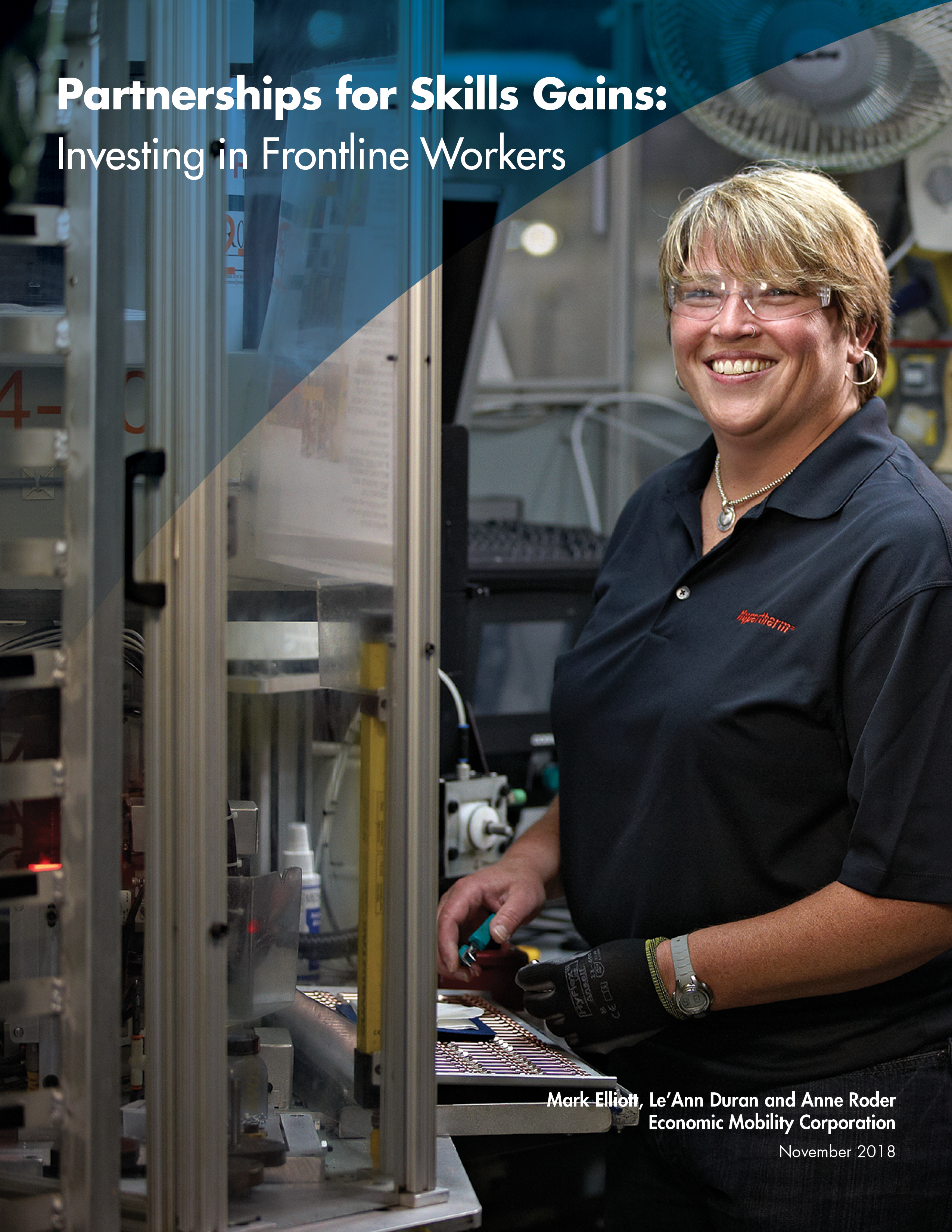
November 2018
Mobility interviewed more than 150 leaders to identify partnerships between employers and workforce organizations where employers are helping pay for skills upgrading of their front line workers. We have published a short summary of the project and invite you to explore the individual partnerships on the accompanying map.
Escalating Gains: The Elements of Project QUEST’s Success

Our full report on the Project QUEST evaluation details the array of supports needed to help low-income, low-skilled workers complete long-term occupational training that led to large earnings gains six years after enrollment.
Taking on Credit: Per Scholas Builds Students’ Job and Financial Skills

Mobility’s assessment of Per Scholas reveals the value of financial coaching for workforce development participants.
Building Stronger Financial Futures

Our interim evaluation of LISC’s Financial Opportunity Centers suggests that low-income individuals can take positive steps to improve their credit histories which could lead to improved credit and financial outcomes in the future.
Evaluation of Year Up Demonstrates Large Earnings Gains

Mobility’s report Sustained Gains indicates that young adults enrolled in Year Up enjoyed three-year earnings $13,000, or 32 percent, more than those of a control group. Year Up students, particularly those who landed jobs in targeted occupations, earned considerably higher wages than their counterparts, which accounted for the bulk of the earnings difference.
A Song in the Front Yard
This report chronicles the many challenges addressed by nonprofits in the 741 Collaborative as they seek to improve the employment prospects of residents on Chicago’s south side. Despite large public funding cuts, the Collaborative members persevered through one of the worst recessions in many years.
Mobility Releases Report on Immigrants and Economic Opportunity
Sound Investments: Building Immigrants’ Skills to Fuel Economic Growth identifies innovative programs across the country that increase immigrants’ opportunities to move up.
Philanthropy, Outcomes and Impact
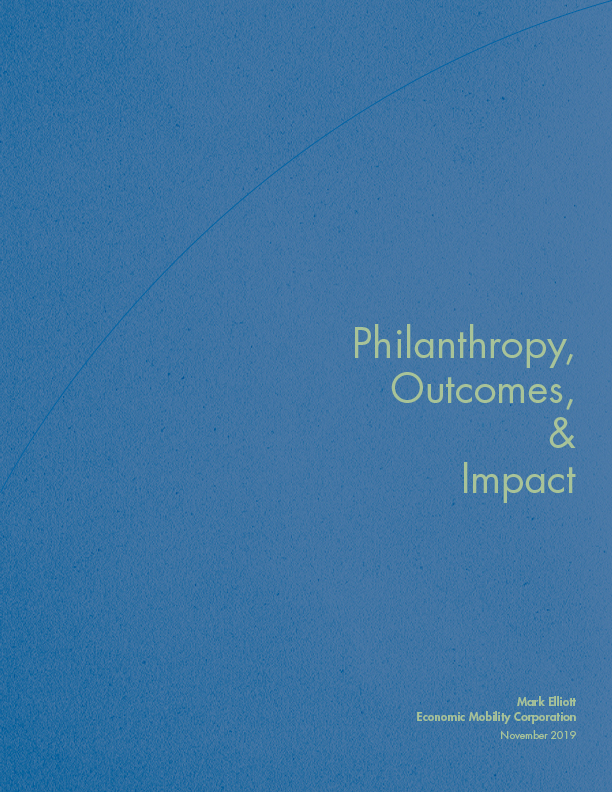
November 2019
Philanthropy’s growing emphasis on outcomes has had profound implications for the workforce development field. In Philanthropy, Outcomes and Impact we share observations on some of the unintended consequences of this movement from leading practitioners in the field. We also examine how focusing exclusively on outcomes can reduce an organization’s impact by drawing on findings from our evaluation of Project QUEST.
Nine Year Gains: Project QUEST's Continuing Impact

April 2019
Mobility’s nine-year randomized controlled trial evaluation found large, sustained earnings impacts for participants that are among the most impressive ever found in a rigorously evaluated workforce development program.
Escalating Gains: Project QUEST’s Sectoral Strategy Pays Off
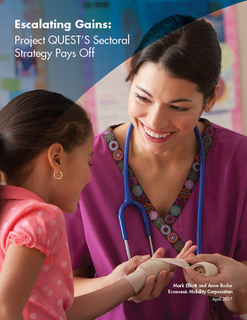
Our impact evaluation demonstrated that Project QUEST participants had annual earnings over $28,000, which was more than $5,000 greater than control group members, six years after enrollment.
First Steps on the Road to Financial Well-Being
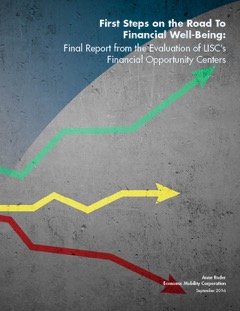
Participants in LISC’s Financial Opportunity Centers initiative were more likely to be employed year-round and were taking steps to improve their credit and financial circumstances.
Moving Up the Ladder: Per Scholas Launches Project Scale

Mobility’s evaluation of Per Scholas’ new training program Project Scale finds that graduates are typically working full-time, making well over $20 an hour.
Building Credit Where It's Needed

Mobility’s brief argues that it is critical for workforce organizations to address participants’ credit issues as part of their program strategies.
Subsidized Employment Programs Show Promise
Mobility’s evaluation of five ARRA-funded subsidized employment programs documents substantial employment and earnings gains for participants, particularly the long-term unemployed. Employers also saw benefits to their bottom line and were eager to participate in similar programs in the future.
Mobility Releases A Promising Start
Mobility’s evaluation of Year Up’s innovative workforce program for young adults demonstrates that Year Up participants earned nearly $3500, or 30 percent more than members of a control group in their first year in the labor market. Participants’ earnings were driven by higher wages in the targeted sectors of information technology and investment operations. The findings are among the most promising in the youth employment field in many years.
